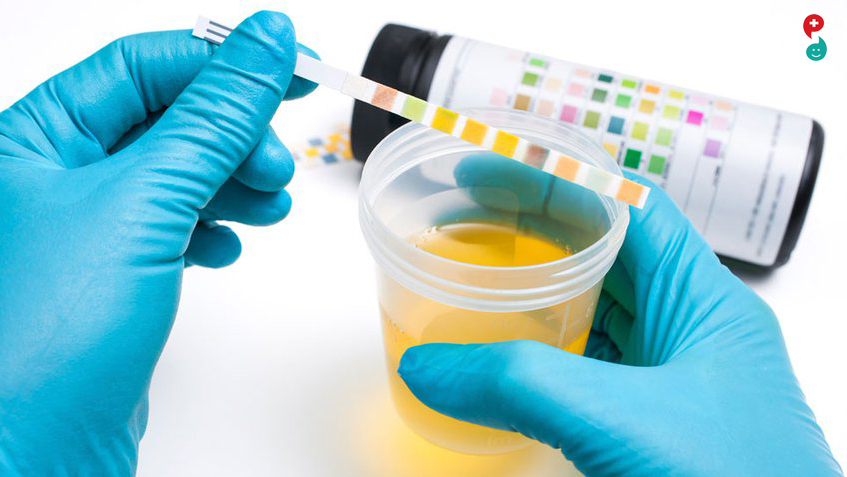
A test for potassium in the urine is a test that checks how much potassium is in the urine. Potassium is both an electrolyteClick here to see more information. and a mineral. It helps keep the water (the amount of fluid inside and outside the body's cells) and electrolyte balance of the body. Potassium is also important in how nerves and muscles work.
Potassium levels often change with sodium levels. When sodium levels go up, potassium levels go down, and when sodium levels go down, potassium levels go up. Potassium levels are also affected by a hormone called aldosterone, which is made by the adrenal glandsClick here to see more information..
Potassium levels can be affected by how the kidneysClick here to see an illustration. are working, the blood pHClick here to see more information., the amount of potassium you eat, the hormoneClick here to see more information. levels in your body, severe vomiting, and taking certain medicines, such as diuretics and potassium supplements. Certain cancer treatments that destroy cancer cells can also make potassium levels high.
Many foods are rich in potassium, including scallops, potatoes, figs, bananas, prune juice, orange juice, and squash. A balanced diet has enough potassium for the body's needs. But if your potassium levels get low, it can take some time for your body to start holding on to potassium. In the meantime, potassium is still passed in the urine, so you may end up with very low levels of potassium in your body, which can be dangerous.
A potassium level that is too high or too low can be serious. Abnormal potassium levels may cause symptoms such as muscle cramps or weakness, nausea, diarrhea, frequent urination, dehydrationClick here to see more information., low blood pressure, confusion, irritability, paralysis, and changes in heart rhythm.
A urine test to check potassium levels is done to:
Look for the cause of a low blood potassium test result (hypokalemia)
Urine potassium can be checked in a single urine sample but it is more often measured in a 24-hour urine sample.
Urine collection over 24 hours
You start collecting your urine in the morning. When you first get up, empty your bladder but do not save this urine. Write down the time that you urinated to mark the beginning of your 24-hour collection period.
For the next 24 hours, collect all your urine. Your doctor or lab will usually provide you with a large container that holds about 1 gal (4 L). The container has a small amount of preservative in it. Urinate into a small, clean container and then pour the urine into the large container. Do not touch the inside of either container with your fingers.
Keep the large container in the refrigerator for the 24 hours.
Empty your bladder for the final time at or just before the end of the 24-hour period. Add this urine to the large container and record the time.
Do not get toilet paper, pubic hair, stool (feces), menstrual blood, or other foreign matter in the urine sample.







